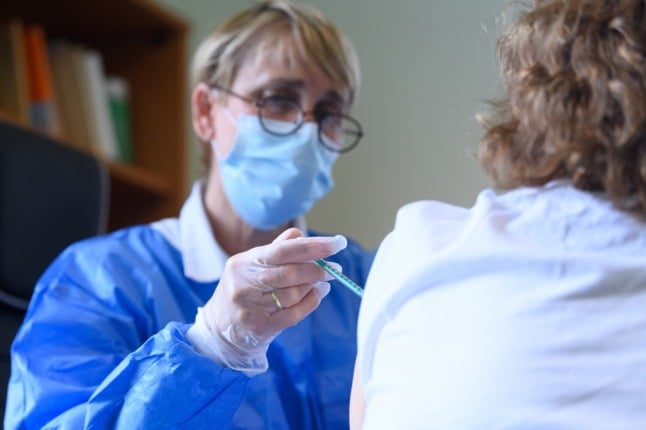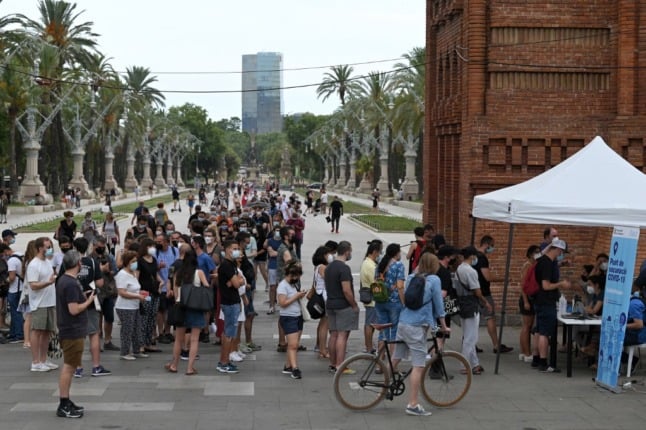How many people have been vaccinated so far?
Overall 40.8 percent (33.9 million people) of the German population has received at least one jab against coronavirus. Meanwhile 14.8 percent (12.3 million people) have been fully vaccinated, according to the latest data.
The share of second jabs in the total daily doses administered is higher than ever before, according to the Robert Koch Institute (RKI).
The newest data showed that 595,125 people were given a jab on Tuesday – and 339,751 of those – 57 percent – were for second jabs or one shot if it was the Johnson & Johnson vaccine, providing full vaccination.
At the same time, the total number of shots administered was significantly lower (31 percent) compared to the previous week. A total of 867,044 injections were delivered into arms on Wednesday May 19th.
🇩🇪🐌🇩🇪🐌🇩🇪🐌🇩🇪🐌🇩🇪
Die Zahl der #Corona-Impfungen gestern lag mit 595.125 rund 31% UNTER Vorwochenniveau.
Die darin enthaltene Zahl der Erstimpfungen (255.374) lag sogar 51% UNTER Vorwochenniveau.@welt pic.twitter.com/h7ePblqciY
— Olaf Gersemann (@OlafGersemann) May 26, 2021
The slower days could be a hangover from Germany’s long weekend for Pentecost. Vaccinations got off to a slow start because of the Monday public holiday.
The vaccination campaign in Germany reached its previous peak on May 12th, with 1.4 million shots administered in one day.
READ ALSO: Can Germany keep the Covid incidence rate under the 50 mark?
Why is it important to inoculate quickly?
Experts say the threat of variants makes it very important to protect people as much as possible by vaccinating them.
High profile virologist Christian Drosten said on his ‘Coronavirus Update’ podcast on Tuesday that Germany was on the right track when it comes to the inoculation campaign.
At the moment the country is in a transitional phase, he said. With regard to the variant discovered in India (B.1.617), Drosten emphasised, “You simply have to vaccinate as quickly as possible. That’s the best thing you can do.”
Germany’s campaign had got off to a sluggish start at the end of December 2020 which was put down to EU-wide supply issues for vaccines, as well as bureaucratic hurdles – perhaps caused by different state procedures – and the inflexible vaccination prioritisation list.
However, the rate of vaccinations has picked up speed since early April, giving hope of a momentum that will continue as the country begins to come out of the third wave.
Since the start of the campaign, Germany has been following a strict priority list on who receives the vaccine first, starting with the elderly, most vulnerable and those whose jobs expose them to Covid.
But from June 7th, the vaccine priority list is to be lifted throughout Germany, opening it up to everyone over the age of 16. It could even be lifted in some federal states slightly earlier.
There are concerns, however, after reports emerged that people in priority groups are still not receiving vaccines in some parts of Germany.



 Please whitelist us to continue reading.
Please whitelist us to continue reading.
Member comments